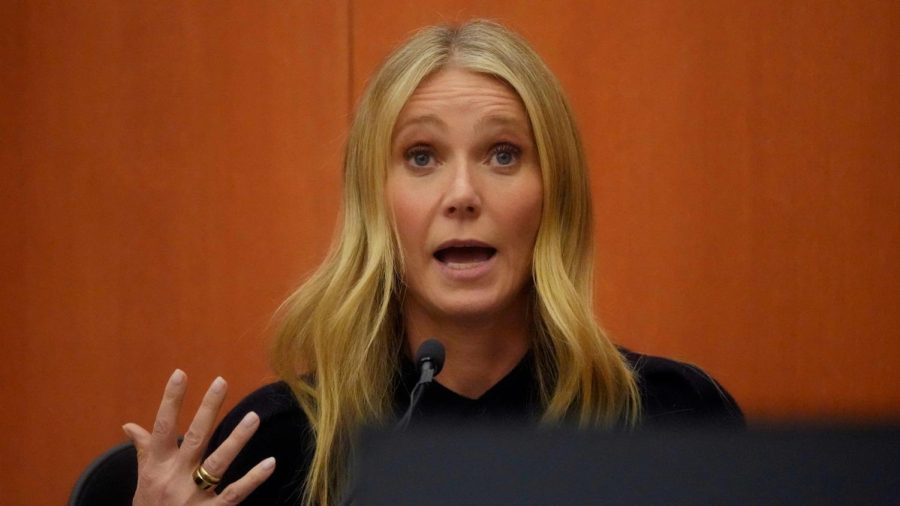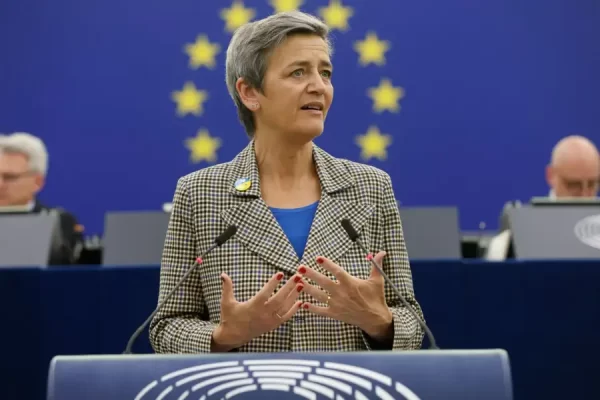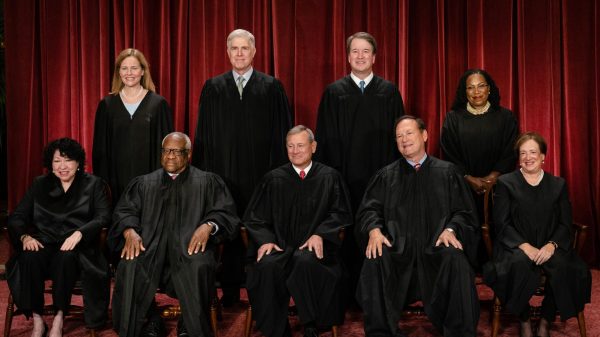Gwyneth Paltrow lawsuit: What happens when court cases go viral
Gwyneth Paltrow is setting the internet ablaze as the recently concluded trial over a 2016 ski crash between the Hollywood actress and a man named Terry Sanderson is going viral.
Beyond the legal proceedings in the Utah court, the case highlights how otherwise ordinary court cases can become nationwide spectacles and the consequences of virality in the legal system.
Sanderson v. Paltrow: Ski crash trial
One thing is for certain: Sanderson and Paltrow collided while skiing at the Deer Valley resort in Utah on Feb. 26, 2016. The point of dispute was whether Sanderson or Paltrow was at fault.
Former US army captain and optometrist Sanderson, 76, claims Paltrow “reckess[ly] crashed into him, letting out a “blood-curdling scream” and causing an accident that left him lying unconscious in the snow, breaking four ribs, experiencing a concussion, and suffering a traumatic brain injury.

Claiming the collision resulted in a “loss of enjoyment of life, emotional distress, and disfigurement,” Sanderson is seeking $300,000 in compensatory damages.
Upon being sued, Paltrow, the Oscar-winning actress, and Goop CEO struck back with an accusation of her own. Paltrow claimed that Sanderson was at fault, as she heard “strange grunting noises” from behind her on the ski slope and experienced physical contact which caused her to crash over the panic of being sexually assaulted.
Though she suffered no major injuries, Paltrow claims she was “hurt and violated”, and decided to counter-sue Sanderson for a dollar in compensatory damages.
Once Paltrow began her testimony, he arrived. This caused speculation that Sanderson was solely concerned with the fame and attention the case would bring him.
This was further supported by his note to his daughter post-crash where he stated, “I’m famous.”
Paltrow also received public criticism for her statements and demeanor while testifying which people believed exposed her true intentions.
While Neuropsychologist Sam Goldstein testified that Sanderson is “obsessed” with this case, Paltrow appears to care very little about the outcome. Her testimony was frank and direct, and she has worn extravagant clothing, all contributing to the virality of this case.
Some are claiming Paltrow is using this case to attain PR for her celebrity platform. Currently, Paltow is garnering more search volume and media attention than ever before. Her lifestyle company Goop is also peaking in publicity, likely leading to more profits and success than ever.
On Thursday, the jury decided in Paltrow’s favor, awarding her $1. Even if she had lost, $300,000 is a drop in the bucket compared to her estimated $200 million net worth.
Despite this, a single trial that would be otherwise going under the radar is generating unprecedented attention for both sides, calling into question whether doling out justice is the true intent of this viral court case.
Depp v. Heard: Celebrity drama galore
Viral court cases have previously been shown to create cultural ripple effects This was exhibited in the 2022 viral defamation trial between formerly married Hollywood actors, Johnny Depp and Amber Heard.
After an unsuccessful United Kingdom (UK) lawsuit against Sun Newspaper, Depp sued Heard for an op-ed she wrote and published in The Washington Post in 2018.
Depp claimed that the statements directed towards him were defamatory. Similarly, Heard followed up with a lawsuit of her own, claiming statements from Depp’s attorneys qualified as defamation.
During the wake of the trial, clips, live streams, analysis, and memes from the case went viral on social media. Both Depp and Heard peaked in search volume, while their attorneys became public figures in their own rights, especially Depp’s attorney Camille Vasquez.
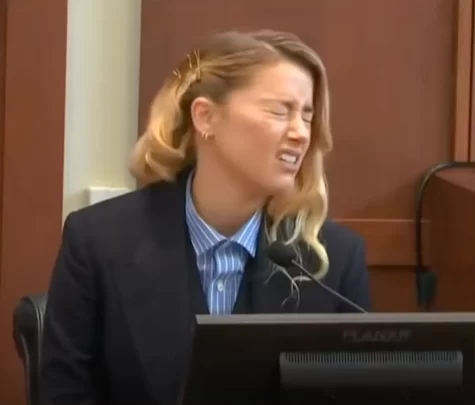
Heard and Depp both accused each other of domestic abuse during their marriage. Depp claimed Heard’s allegations caused him to lose respect and opportunities, including his most iconic role as Captain Jack Sparrow in Disney’s “Pirates of the Caribbean” series, and being recast in Warner Bros.’s “Fantastic Beasts” film franchise.
Conversely, Amber rose in success, appearing in the billion-dollar Detective Comics (DC) film “Aquaman” in 2018, earning millions of dollars from her divorce settlements with Depp, and becoming an ambassador for the American Civil Liberties Union (ACLU).
Her success came crashing down when she was found liable for defamation by the jury, and more significantly, deemed a liar and domestic abuser by 91 percent of poll respondents.
The nuances of the legal proceedings, including Heard’s victory in her suit against Depp, did not affect public opinion. Depp’s reputation was significantly restored, while Heard’s was severely damaged.
Memes claiming that Heard was acting in her emotional testimony to sell lies to the jury and viewers, ran rampant on social media.
The public perception of the female accuser became extremely negative, while the issue of domestic abuse against men as well was spotlighted. The cultural conversation in the wake of the MeToo movement saw major changes.
State of Wisconsin v Rittenhouse: Court of law meets court of public opinion
In sharp contrast to the jury’s verdict on Depp v. Heard, many in the public strongly disagreed and responded angrily to the verdict in the case State of Wisconsin v. Rittenhouse.
On August 25, 2020, 17-year-old Kyle Rittenhouse drove from Illinois to Kenosha, Wisconsin to participate in a counter-protest against Black Lives Matter (BLM) protestors and rioters.

In the middle of the civil unrest, riots, and chaos that emerged, Rittenhouse shot three men, killing two of them. The trial decided whether Rittenhouse acted maliciously or in self-defense.
With significant evidence on both sides, the prosecution failed to prove that Rittenhouse committed second-degree murder “beyond a reasonable doubt” in the eyes of the jury, which acquitted Rittenhouse.
The decision sparked protests and controversy. According to polling data, 43 percent of people believed an innocent man kept his freedom, while 39 percent thought the legal system failed to deliver justice.
It was so divisive that Rittenhouse appeared on live cable news on multiple occasions to defend himself.
This court case exemplifies the disputes that arise when a section of the public disagrees with a court’s decision.
State of Minnesota v. Chauvin: George Floyd’s killer is found guilty of murder
The trial of Derek Chauvin, the Minnesota police officer who killed George Floyd, was the aftermath of the biggest incident contributing to the rise of the BLM movement. The court case ruling aligned with the outcome critics of the Rittenhouse verdict were hoping for.
Following public backlash, prosecutors charged Chauvin with second-degree murder. The trial concluded with Chauvin being found guilty, convicted, and sentenced to over 22 years in state prison.

Polls indicated 71 percent of Americans agreed that Chauvin was guilty of Floyd’s murder. Democratic voters were especially in favor of the outcome, with 85 percent agreeing with the jury’s verdict.
Though more widely accepted than the impending Rittenhouse verdict, a large minority of Americans responded unfavorably to the trial’s result, with 45 percent of Republican voters disagreeing with the verdict.
The court’s virality emerged due to the dispute over the conviction and that it followed the killing of George Floyd.
Regardless of the jury’s decision, Americans’ opinions on the matter were seemingly dependent on political affiliation. This case became one of many partisan disagreements and reflects an inherent divide between Democratic and Republican voters on the issues of police brutality, race relations, and the criminal justice system.
CA v. Simpson: “If it doesn’t fit, you must acquit.”
The 1995 trial for the murders of Nicole Simpson and Ron Goldman is regarded as the most viral and widely viewed court case of all time, with over 150 million people watching the verdict on television.
This is primarily because due to its famous defendant, NFL player and ex-husband of Nicole, Orenthal James (O.J.) Simpson, the dramatic events occurring before and during the trial, and its infamous conclusion.
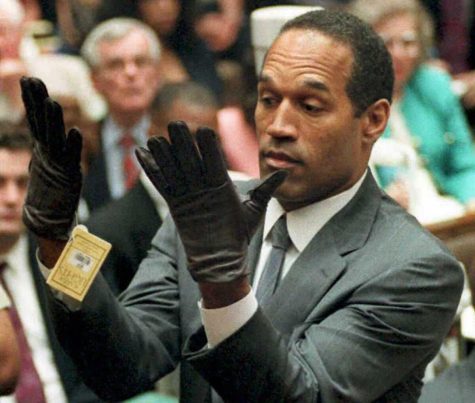
Shortly following the murder, Simpson became the prime suspect due to his suspicious behavior.
Immediately upon learning of his wife’s death, he asked “Who killed her?”
Millions of people watched live, as authorities pursued Simpson who was attempting to escape in a low-speed chase on the freeway.
During the trial, the evidence gathered by police and prosecutors was called into question due to their own suspicious practices, including their history of racial discrimination, police brutality, and failures to properly maintain evidence.
Many people showed particular interest when the glove found at the crime scene was tested to see if it fit Simpson’s hands. His attorney, Johnnie Cochran, famously remarked “If it doesn’t fit, you must acquit.”
The glove did not appear to fit. This conclusion, along with extensive evidence that was successfully scrutinized and refuted by Simpson’s defense team, made the jury rule Simpson innocent of the murders.
The result was disputed ever since, with more incriminating evidence against Simpson arising following the trial, and sparked interest in his suspicious actions.
A 2016 survey revealed over 96 percent of Americans strongly believed that Simpson was guilty of the murders.
Prior to the trial, Simpson was one of the most beloved celebrities in America, and people were shocked to see someone they admired may have been a murderer.
The impact of court cases becoming viral vary based on the unique circumstances surrounding the trial.
Nevertheless, Paltrow’s case continues the trend of single court cases becoming a widespread topic of conversation and public knowledge, providing yet another instance for people to witness what happens when court cases gain popularity.

